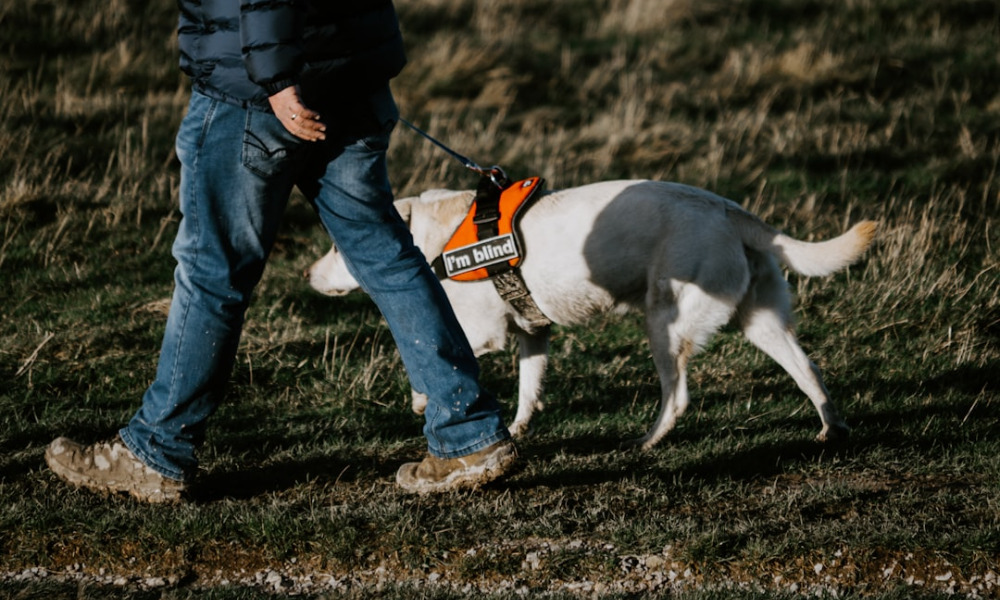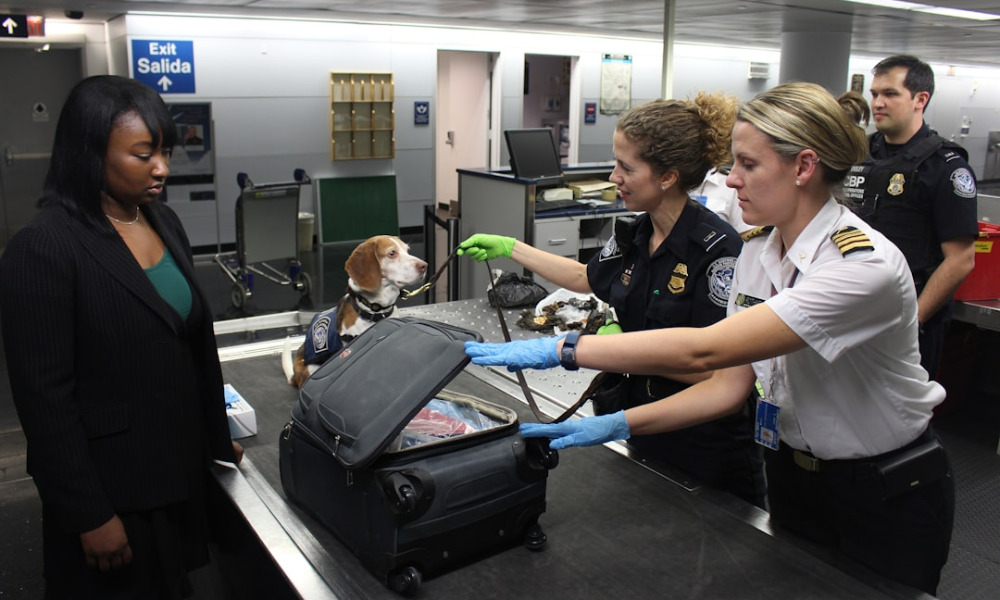
Therapy dogs play an invaluable role in providing comfort, support, and companionship to individuals in hospitals, nursing homes, schools, and other settings. These specially trained dogs help reduce stress, anxiety, and depression, promoting emotional and mental well-being. To perform their duties effectively, therapy dogs require proper nutrition tailored to their specific needs. This article explores the optimal diet for therapy dogs, their nutritional requirements, and other essential considerations to ensure they remain healthy, happy, and capable of fulfilling their role.
The Role of Therapy Dogs
Therapy dogs are selected and trained to provide emotional support to people in various environments. Unlike service dogs, which perform specific tasks for individuals with disabilities, therapy dogs offer comfort to many people. They interact with different individuals, often in emotionally charged situations, making their role demanding both mentally and physically.
Given the nature of their work, therapy dogs need to maintain a calm, patient demeanor while being responsive and engaged. Their diet and overall care must support these qualities, ensuring they are physically fit, emotionally balanced, and mentally alert.
Nutritional Requirements for Therapy Dogs
To support their demanding role, therapy dogs require a balanced diet rich in specific nutrients. Here are the key nutritional components to consider when feeding therapy dogs:
1. High-Quality Protein
Protein is essential for building and repairing muscles, maintaining a healthy immune system, and supporting overall growth and development. Therapy dogs, like all dogs, need a diet rich in high-quality protein to keep their muscles strong and their bodies healthy.
Sources of high-quality protein include chicken, turkey, beef, fish, and lamb. When choosing dog food, look for products where meat is the primary ingredient, as this indicates a higher protein content. Avoid foods with meat by-products, as they are less nutritious.
Protein also plays a vital role in keeping therapy dogs energetic and active. These dogs often spend hours visiting different facilities, interacting with numerous people. A diet rich in protein ensures they have the stamina to perform their duties without becoming fatigued.
2. Healthy Fats
Fats are a concentrated source of energy, providing more than twice the energy per gram compared to proteins or carbohydrates. For therapy dogs, healthy fats are crucial for maintaining their energy levels throughout the day.
Omega-3 and Omega-6 fatty acids, in particular, are beneficial for therapy dogs. Omega-3 fatty acids, found in fish oil and flaxseed, support brain health, reducing inflammation and promoting cognitive function. This is important for therapy dogs, who need to stay calm and focused in various situations. Omega-6 fatty acids, found in poultry fat and vegetable oils, help maintain healthy skin and a shiny coat.
Including healthy fats in the diet also supports the heart health of therapy dogs, ensuring they can keep up with their demanding schedules without unnecessary strain on their cardiovascular system.
3. Complex Carbohydrates
Carbohydrates provide a steady source of energy, helping therapy dogs remain active and alert during their visits. Complex carbohydrates, such as sweet potatoes, brown rice, and oats, are preferable to simple sugars, as they provide sustained energy without causing spikes in blood sugar levels.
Therapy dogs often work in environments where they need to be patient and calm, such as hospitals or schools. A diet that includes complex carbohydrates helps regulate their energy levels, preventing hyperactivity or sluggishness that could affect their performance.
Carbohydrates also contribute to a healthy digestive system, as many complex carbs contain dietary fibre. Fibre aids in digestion, ensuring that therapy dogs maintain regular bowel movements and avoid gastrointestinal issues that could impact their comfort and ability to work.
4. Vitamins and Minerals
Vitamins and minerals are essential for various bodily functions, from immune support to bone health. Therapy dogs need a well-balanced diet that provides all the necessary vitamins and minerals to keep them healthy and resilient.
Key vitamins and minerals for therapy dogs include:
- Vitamin A: Supports vision, skin health, and immune function.
- Vitamin D: Essential for calcium absorption and bone health.
- Vitamin E: Acts as an antioxidant, protecting cells from damage and supporting skin and coat health.
- B-vitamins: Involved in energy metabolism and the maintenance of healthy nerves and brain function.
- Calcium and Phosphorus: Important for bone and dental health, especially for older therapy dogs.
- Zinc and Selenium: Support immune function and help maintain a healthy coat.
A balanced diet that includes these vitamins and minerals will help ensure that therapy dogs remain healthy, reducing the risk of illness and keeping them active and engaged in their work.
5. Hydration
Proper hydration is crucial for therapy dogs, especially when they are working in environments that may be warm or where they are active for extended periods. Water is essential for digestion, nutrient absorption, and temperature regulation.
Therapy dogs should have constant access to fresh, clean water, particularly during and after their visits. Dehydration can lead to fatigue, lethargy, and other health issues, impacting their ability to perform their role effectively.
Feeding Practices for Therapy Dogs
In addition to providing the right nutrients, it’s important to follow feeding practices that support the health and well-being of therapy dogs.
1. Consistent Feeding Schedule
Maintaining a consistent feeding schedule helps regulate a therapy dog’s metabolism and energy levels. Most dogs do well with two meals per day, one in the morning and one in the evening. This routine helps to stabilize their blood sugar levels and ensures they have the energy needed for their visits.
Feeding at regular intervals also helps prevent digestive issues, such as bloating or discomfort, which could interfere with the dog’s ability to work. It’s important to avoid feeding therapy dogs immediately before a visit, as a full stomach could make them uncomfortable or less responsive.
2. Portion Control
The amount of food a therapy dog needs depends on its size, age, and activity level. Overfeeding can lead to obesity, which can reduce a dog’s mobility and increase the risk of health problems, such as joint issues and diabetes. Underfeeding, on the other hand, can result in a lack of energy and poor overall health.
It’s important to monitor your therapy dog’s weight and body condition regularly and adjust portion sizes as needed. Active therapy dogs may require more food to meet their energy needs, while less active dogs may need smaller portions to maintain a healthy weight.
3. Supplementation
While a balanced diet should provide all the necessary nutrients, some therapy dogs may benefit from additional supplementation, particularly if they have specific health concerns. Common supplements for therapy dogs include:
- Joint supplements: Containing glucosamine and chondroitin to support joint health and mobility, especially in older dogs.
- Fish oil: Rich in omega-3 fatty acids, supporting cognitive function, heart health, and a healthy coat.
- Probiotics: Helping to maintain a healthy digestive system, especially during periods of stress or after antibiotic treatment.
Before adding supplements to your therapy dog’s diet, consult with a veterinarian to ensure they are appropriate for your dog’s needs.
Special Considerations for Therapy Dogs
In addition to proper nutrition, therapy dogs have other specific needs that must be met to ensure they can perform their role effectively.
1. Emotional and Mental Well-being
Therapy dogs are often exposed to emotionally charged environments, such as hospitals or nursing homes, where they may interact with people who are ill, stressed, or grieving. It’s important to support the emotional and mental well-being of therapy dogs to ensure they can continue to provide comfort and support to others.
Regular breaks, plenty of rest, and positive reinforcement can help therapy dogs manage stress and maintain their emotional balance. It’s also important to provide them with a safe and quiet space to relax after their visits, where they can unwind and recharge.
Mental stimulation is also crucial for therapy dogs. Engage them in activities that challenge their cognitive abilities, such as puzzle toys, scent work, or training exercises. A diet that supports brain health, including foods rich in omega-3 fatty acids and B-vitamins, can enhance their cognitive function and keep them mentally sharp.
2. Physical Exercise
While therapy dogs may not engage in the same level of physical activity as working dogs, regular exercise is still important for maintaining their physical health and preventing obesity. Daily walks, playtime, and light exercise can help keep therapy dogs fit and healthy.
Exercise also provides an outlet for any pent-up energy, reducing stress and anxiety. A well-exercised dog is more likely to be calm, relaxed, and focused during therapy sessions.
3. Routine Health Care
Regular veterinary care is essential for maintaining the health of therapy dogs. Routine check-ups can help detect and address health issues before they become serious. Dental care is also important, as dental disease can lead to other health problems and affect a dog’s comfort and ability to eat properly.
Vaccinations, flea and tick prevention, and regular deworming are all part of a comprehensive health care routine that will keep therapy dogs healthy and ready to perform their duties.
Choosing the Right Food for Therapy Dogs
When selecting food for your therapy dog, consider the following factors:
1. Ingredient Quality
Look for dog foods that use high-quality ingredients, with real meat as the first ingredient. Avoid foods that contain fillers like corn, soy, or wheat, which provide little nutritional value and can be difficult for some dogs to digest.
2. Grain-Free Options
Some therapy dogs may have sensitivities or allergies to grains. In these cases, grain-free dog foods can be a good option. These foods often use alternative carbohydrates like sweet potatoes, peas, or lentils, which are easier to digest and provide a steady source of energy.
3. Tailored Nutrition
Consider foods that are specifically formulated for the needs of therapy dogs. These foods typically have a higher protein content to support muscle. See Below
Great Food For Therapy Dogs






































